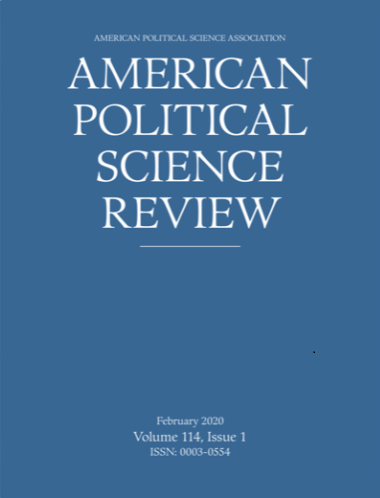不确定时刻的镇压和异议:来自津巴布韦的小组数据证据
IF 5.8
1区 社会学
Q1 POLITICAL SCIENCE
引用次数: 2
摘要
国家镇压和抗议在现代独裁政权和混合政权中很常见,但个人对这些事件的反应还不太清楚。本文引用了津巴布韦2018年大选期间的独特小组数据,我们认为这对大多数津巴布韦公民来说是一个不确定的时刻。使用差异中的差异估计器,我们估计了暴露于镇压和异议之后个人抗议意图的变化,并评估了三种假设驱动反应的个人层面机制。我们发现有证据表明,在反对派支持者和无党派人士中,暴露在当地镇压和异见情绪中的情况正在动员起来。对潜在机制的分析表明,暴露于异议的影响可能是由信息更新驱动的,而关系和情感机制似乎会驱动对镇压的强烈反对,尽管人们对风险的感知有所增加。我们没有发现执政党支持者进行反动员的证据,也没有发现在社交媒体上曝光有争议事件的影响。本文章由计算机程序翻译,如有差异,请以英文原文为准。
Repression and Dissent in Moments of Uncertainty: Panel Data Evidence from Zimbabwe
State repression and protest are common in modern authoritarian and hybrid regimes, yet individual responses to these events are not well understood. This article draws on unique panel data from the months spanning Zimbabwe’s 2018 election, which we view as a moment of uncertainty for most Zimbabwean citizens. Using a difference-in-difference estimator, we estimate change in individual protest intentions following exposure to repression and dissent and we assess three individual-level mechanisms hypothesized to drive responses. We find evidence that exposure to local repression and dissent are mobilizing among opposition supporters and nonpartisans. Analysis of potential mechanisms suggests that the effects of exposure to dissent may be driven by information updating, whereas relational and emotional mechanisms seem to drive backlash against repression, despite increased perceptions of risk. We find no evidence of counter-mobilization by ruling party supporters, and little effect of exposure to contentious events over social media.
求助全文
通过发布文献求助,成功后即可免费获取论文全文。
去求助
来源期刊

American Political Science Review
POLITICAL SCIENCE-
CiteScore
9.80
自引率
5.90%
发文量
119
期刊介绍:
American Political Science Review is political science''s premier scholarly research journal, providing peer-reviewed articles and review essays from subfields throughout the discipline. Areas covered include political theory, American politics, public policy, public administration, comparative politics, and international relations. APSR has published continuously since 1906. American Political Science Review is sold ONLY as part of a joint subscription with Perspectives on Politics and PS: Political Science & Politics.
 求助内容:
求助内容: 应助结果提醒方式:
应助结果提醒方式:


